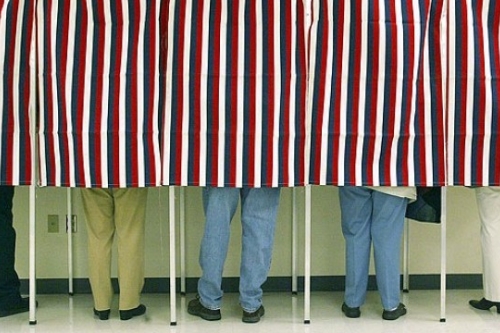
My interest in technology often revolves around one thing in particular – democracy. With technology, it is hoped, democracy can be spread around the world, and this democracy can become corruption free and efficient. As it happens for the American Election this year, there are a number of different technologies that will hope to revolutionise how people relate with politics.
The Campaigns themselves
Both Democrats and Republicans have used technology in different ways to better organise their core voters. As part of the 2008 election campaign, in which Obama was elected on a passionate wave of hope and possibility, much was made of the role of twitter and other social networks to really get people inspired by the message. Often neglected in analysis since, given the role of these technologies in events like rioting and the arab spring has seen this form of interaction take on an altogether more violent edge, the role of twitter in getting Obama into the White House cannot be underestimated. Sure, much of his support came from Black and Hispanic voters who finally saw a candidate that might genuinely represent their views, but it was the new generation of voters that he really inspired – a group that transcends both sex and race.
This year, the democrats unveiled their latest tool – dashboard. Dashboard was a project that was being worked on behind the scenes for a number of years, and when first revealed promised to change the way democrats could inspire the grass-roots movement to get involved. The features of dashboard are fairly simple – with simple group network and fundraising tools (see this ) – which all point towards getting volunteers to where they can best be organised. The dashboard does this by connecting to a simple “vote builder” database which contains telephone numbers, addresses, and other personal data, for millions of people and connects these with the volunteers who want to contact them. Why waste resources on known, keen republicans – when instead you can concentrate on getting firm democrats out to vote as early and as soon as possible? Once these early votes are cast, resources on the final stages can be diverted to the undecided (whoever they are).
The role of technology for republicans is an altogether different beast. Their weapon in democracy was the construction of a giant database called Themis – which looked to emulate the success of a similar project called Catalist that helped the democrats win the election in 2008 – but which operates in secrecy. Not knowing much about the project, it is difficult to say much about what it is doing – but some have pointed towards its business partners, which include Intell360 that describes data mining services for likely voters. Under law, due to the way the project is managed it cannot co-ordinate with the candidates, but can work with advocacy groups. What can be said however, relies on how this group has operated – and if it does, as many predict, have voter data, and uses it analytically and efficiently, but which does not include grass-roots and activist groups in its use, we can suggest that it is a project which suppress the democratic instinct. This isn't technology employed to inspire participation in a democratic system – it is designed to beat it.
Obviously this analysis – democrats good, republicans bad, despite both using centralised databases of personal data – fits into a liberal agenda, and many would be right to suggest I have evidence to work with, but it is still crucial that the very central openness of the democrats use of this data, as opposed to the republic closed and secretive model, Much of the campaign for the democrat side of things is about ensuring people vote at all. Getting people to vote, getting the enthusiasm that no only inspires the individual to vote, but frisks them up enough to – it is, and continues to be, the agenda of the democrats to ensure that larger numbers of people are represented, and are given the chance to vote, as the rights and desires of the innumerable poor challenge the individual and private interests of an increasingly limited and privileged few.
Voting Machines
For native Brits reading up, hoping as most th
hip advice”>relationship advice